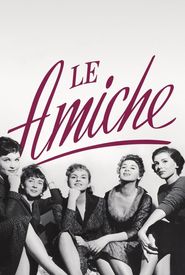Born in 1911, Alba de Céspedes y Bertini, a multifaceted and accomplished writer, emerged as a talented individual, the product of a unique cultural heritage. Her father, Carlos Manuel de Céspedes y Quesada, held the esteemed position of Cuban ambassador to Italy, while her mother, Laura Bertini y Alessandri, was of Italian descent, bringing together two distinct nationalities to form the foundation of Alba's identity.
As the daughter of these two prominent individuals, Alba was exposed to the rich cultural traditions of both Cuba and Italy, which would later influence her writing and artistic expression. The intersection of these two cultures would ultimately shape her perspective, informing her work with a unique blend of Latin American and European sensibilities.
Growing up in this extraordinary environment, Alba de Céspedes y Bertini's life was marked by the fusion of two worldviews, allowing her to develop a distinct voice and artistic style that would set her apart from her contemporaries.
In the 1930s, Maria De Céspedes embarked on a journalistic journey, penning articles for renowned publications like Piccolo, Epoca, and La Stampa, thereby laying the foundation for a long and illustrious writing career.
Her literary odyssey commenced with the publication of her debut novel, L'Anima Degli Altri, in 1935, a milestone that would mark the beginning of a decades-long tenure as a prolific writer, with a body of work that would leave an indelible mark on the literary world.
The literary works of this notable author were profoundly shaped by the chaotic and tumultuous era that preceded and followed the devastating global conflict known as World War II. A distinctive hallmark of her writing style was the meticulous attention she devoted to crafting female protagonists imbued with a profound sense of subjectivity, thereby granting them a richly nuanced and multidimensional presence within the narrative.
Despite her significant literary accomplishments, the author's life was not without its challenges. Her courageous anti-fascist activism in Italy during the 1930s ultimately led to her imprisonment in 1935. The repercussions of this experience extended beyond her personal life, as two of her novels, Nessuno Torna Indietro and La Fuga, were subsequently banned, effectively silencing her creative voice and restricting the dissemination of her ideas to a wider audience.
De Céspedes' unwavering commitment to the Italian Resistance led to her imprisonment once more in 1943, this time due to her pivotal role with Radio Partigiana in Bari, where she adopted the pseudonym Clorinda, utilizing her unique voice to spread vital messages and inspire hope among the Italian people.
Upon her eventual release, De Céspedes embarked on a new chapter in her life, taking on the esteemed task of penning an agony column, aptly titled Dalla parte di lei, for the esteemed Epoca magazine from 1952 to 1958, offering solace and guidance to those in need through her empathetic and insightful writings.
Notably, De Céspedes' creative endeavors extended beyond the realm of literature, as she also ventured into the world of film, penning the screenplay for Michelangelo Antonioni's 1955 cinematic masterpiece, Le Amiche.






















